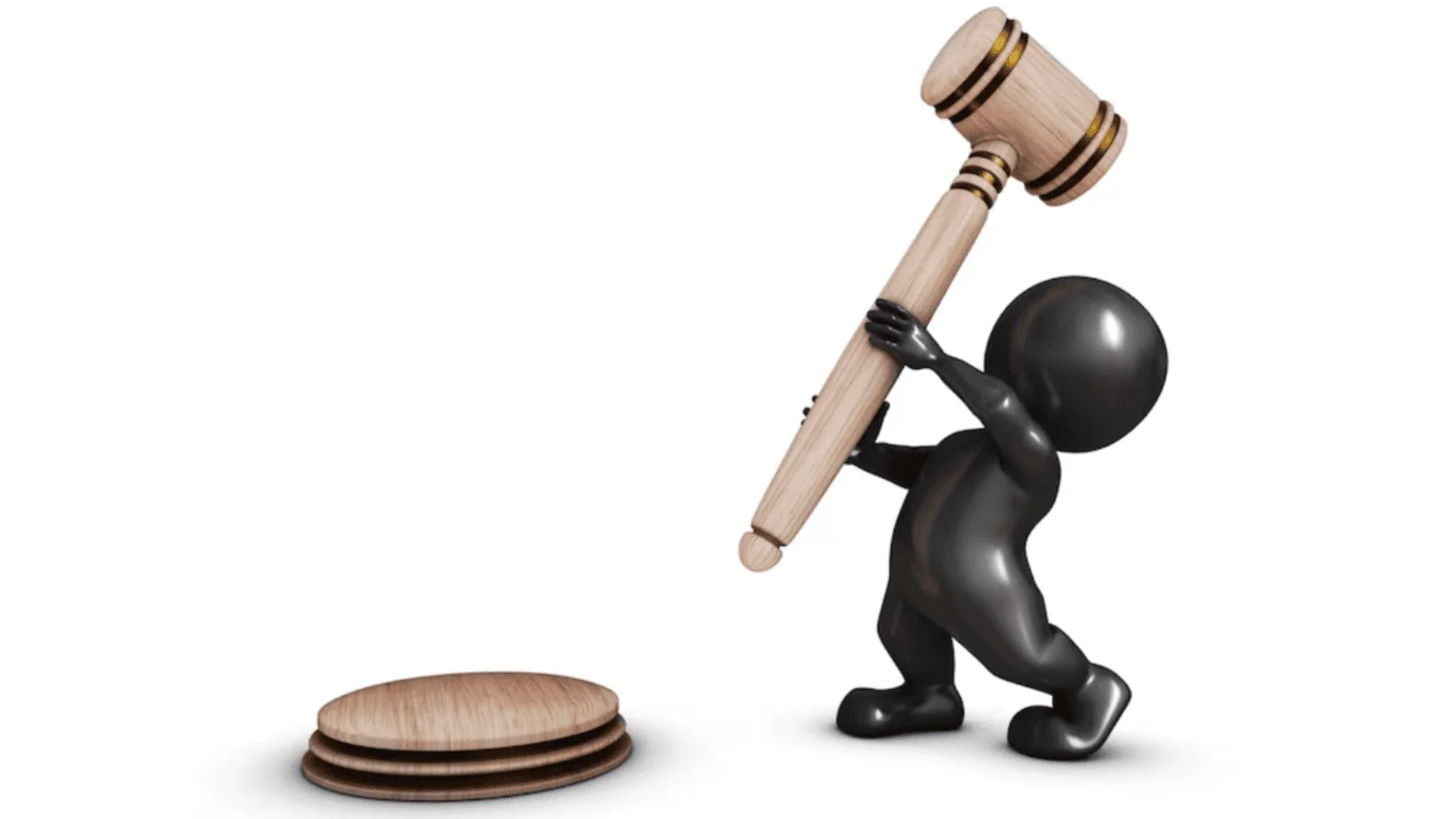In today’s fast-paced world, relationships can sometimes reach a breaking point, leading couples to consider the difficult path of divorce. It’s a challenging time filled with emotional turmoil, financial uncertainties, and legal complexities. This article serves as your comprehensive guide to understanding the role of a divorce lawyer and the crucial steps involved in this life-altering process.
Introduction
Divorce, the dissolution of a marriage, is a life-altering event that requires careful consideration and professional guidance. A divorce lawyer, also known as a family law attorney, plays a pivotal role in helping individuals navigate the complex legal proceedings associated with divorce.
What is a Divorce Lawyer?
A divorce lawyer, also known as a family law attorney, is a legal professional who specialises in handling cases related to divorce and the dissolution of marriage. These lawyers are experts in the field of family law and provide legal representation and guidance to individuals who are going through the process of ending their marriage.
The primary role of a divorce lawyer is to assist their clients in navigating the complex legal procedures and issues that arise during a divorce. Here are some key responsibilities and functions of a divorce lawyer:
Responsibilities and functions of a divorce lawyer
1. Legal Advice: Divorce lawyers offer legal advice to their clients, explaining the rights, responsibilities, and legal implications associated with divorce.
2. Paperwork and Documentation: They help clients prepare and file all the necessary legal documents required for divorce proceedings. This includes petitions, motions, and financial disclosures.
Negotiation
3. Negotiation: Divorce lawyers negotiate on behalf of their clients, aiming to reach mutually acceptable agreements with the opposing party on issues such as child custody, child support, spousal support (alimony), and the division of assets and debts.
4. Representation in Court: If negotiations fail and the divorce case goes to court, divorce lawyers represent their clients in front of a judge. They present evidence, make legal arguments, and advocate for their client’s interests.
5. Child Custody: In cases involving children, divorce lawyers help their clients establish child custody and visitation arrangements that are in the best interests of the child.
6. Spousal Support: They assist in determining whether one spouse is entitled to receive financial support (alimony) from the other and, if so, the amount and duration of such support.
7. Property Division: Divorce lawyers help in the equitable division of marital property and assets, ensuring a fair distribution between the spouses.
8. Mediation: Some divorce lawyers are trained in mediation techniques and can help couples resolve their differences through peaceful negotiation and mediation instead of going to court.
9. Legal Guidance: Throughout the divorce process, divorce lawyers provide their clients with legal guidance and ensure that their rights are protected.
It’s important to note that divorce lawyers play a critical role in helping individuals navigate the emotional and legal complexities of divorce. They strive to achieve the best possible outcomes for their clients while minimising the stress and challenges associated with the divorce process.
Why Do You Need a Divorce Lawyer?

Divorce involves a multitude of legal intricacies, from property division to child custody agreements. Having a divorce lawyer by your side can:
– Ensure that your rights are protected.
– Expedite the process by handling paperwork and legal formalities.
– Offer objective guidance during emotionally charged disputes.
– Secure the best possible outcome in terms of custody, support, and property division.
Types of Divorce
Contested Divorce
In a contested divorce, spouses cannot agree on key issues, leading to courtroom litigation. This type of divorce can be emotionally taxing and financially burdensome.
Uncontested Divorce
An uncontested divorce is less adversarial, as both spouses agree on the terms of the divorce. It is typically faster and more cost-effective.
Legal Grounds for Divorce
Legal grounds for divorce refer to the specific reasons or justifications recognized by the legal system that allow a married couple to legally end their marriage. These grounds vary from one jurisdiction to another, but they generally fall into two main categories: “no-fault” and “fault-based” grounds.
1. No-Fault Grounds:
– Irreconcilable Differences: No-fault divorce is the most common type today. Irreconcilable differences simply mean that the couple can no longer get along and their marriage is beyond repair. It doesn’t assign blame to either party.
– Living Apart: In some jurisdictions, living apart for a specified period (often referred to as “legal separation”) without reconciliation is a no-fault ground for divorce. The duration of separation required varies by location.
– Mutual Consent: In some states or countries, both spouses can agree to divorce, and as long as they both consent, they can proceed without citing specific reasons.
2. Fault-Based Grounds:
– Adultery: Adultery involves one spouse engaging in a sexual relationship with someone other than their spouse while still married. Proof of adultery may be required.
– Cruelty or Abuse: Cruelty or abuse can be physical, emotional, or mental mistreatment inflicted by one spouse upon the other. Evidence of such abuse may be necessary.
– Abandonment: If one spouse abandons the other for an extended period without a reasonable cause or intention to return, it can be grounds for divorce.
– Addiction: In some cases, addiction to drugs or alcohol that significantly affects the marriage and family life can be a basis for divorce.
– Incarceration: Prolonged imprisonment of one spouse can be grounds for divorce in certain jurisdictions, particularly if it leads to a breakdown in the marriage.
– Mental Incapacity: If one spouse is deemed mentally incapacitated or insane, and this condition has lasted for a specific period, it may be a basis for divorce.
It’s essential to note that the availability of these grounds can vary widely depending on local laws and regulations. Some jurisdictions only recognize no-fault divorce, while others allow for fault-based divorce or a combination of both.
Procedures for filing for divorce
Additionally, the requirements and procedures for filing for divorce based on these grounds can differ, so it’s crucial to consult with a divorce lawyer or legal expert who is familiar with the laws in your area to understand the specific grounds applicable to your situation.
The Divorce Process
Filing for Divorce
The process begins with one spouse filing a divorce petition, outlining the reasons for divorce and their desired terms.
Serving Divorce Papers
The other spouse is served with divorce papers and has a set period to respond.
Discovery and Negotiations
Both parties gather information about assets, debts, and child-related matters. Negotiations may occur with the aim of reaching a settlement.
Court Proceedings
If an agreement cannot be reached, the case goes to court, where a judge makes the final decisions.
Child Custody and Support
Divorce often involves decisions about child custody and support. Your divorce lawyer will work to protect your children’s best interests.
Spousal Support (Alimony)
In some cases, one spouse may be entitled to financial support from the other, known as alimony. Your lawyer can help determine if this applies to your situation.
Property Division
The equitable division of property and assets is a crucial aspect of divorce. Your attorney will help you navigate this process.
Mediation and Collaborative Divorce
In less adversarial situations, mediation or collaborative divorce can be alternatives to courtroom battles. Your lawyer can guide you through these options.
Hiring the Right Divorce Lawyer
Hiring the right divorce lawyer is a crucial step in navigating the challenging and often emotionally charged process of divorce. The attorney you choose will play a significant role in protecting your rights, advocating for your interests, and guiding you through the legal proceedings. Here are some essential tips on hiring the right divorce lawyer:
1. Assess Your Needs:
– Before you start your search for a divorce lawyer, assess your needs and goals. Consider the specific issues you expect to face during your divorce, such as child custody, spousal support, or complex asset division.
2. Seek Recommendations:
– Ask for recommendations from friends, family members, or colleagues who have gone through a divorce. They can provide valuable insights into their experiences with different lawyers.
3. Research and Shortlist:
– Conduct thorough research online to identify potential divorce lawyers in your area. Create a shortlist of attorneys whose expertise matches your needs.
4. Check Qualifications:
– Verify the qualifications of the lawyers on your list. Ensure they are licensed to practice law in your jurisdiction and have experience in family law and divorce cases.
5. Read Reviews and Testimonials:
– Look for online reviews and testimonials from previous clients. These can give you a sense of the lawyer’s reputation and their ability to handle divorce cases effectively.
6. Schedule Consultations:
– Arrange initial consultations with the lawyers on your shortlist. Most attorneys offer free or low-cost initial consultations. Use this opportunity to discuss your case, ask questions, and assess their communication style and compatibility with your needs.
7. Ask Questions:
– During the consultation, ask the lawyer specific questions, such as:
– How long have you been practising family law?
– Have you handled cases similar to mine?
– What is your approach to divorce cases?
– How do you communicate with clients?
– What are your fees and payment structure?
8. Evaluate Experience:
– Experience matters in divorce cases. Inquire about the lawyer’s experience in negotiations, mediation, and courtroom representation, depending on your situation.
9. Consider Compatibility:
– Choose a lawyer with whom you feel comfortable and can communicate openly. A good attorney-client relationship is essential for a successful outcome.
10. Discuss Fees and Costs:
– Clearly understand the attorney’s fee structure and the estimated costs of handling your case. Ensure there are no hidden fees or surprises.
11. Review the Contract:
– Before hiring a lawyer, carefully review the retainer agreement or contract. Ensure it outlines the scope of work, fees, and expectations.
12. Seek Second Opinions:
– Don’t hesitate to seek a second opinion if you have doubts about a lawyer’s advice or approach. It’s essential to have confidence in your legal representation.
13. Check References:
– Ask the lawyer for references from previous clients. Contact these references to gain further insights into the attorney’s performance and professionalism.
14. Trust Your Instincts:
– Ultimately, trust your instincts when making a decision. Choose a divorce lawyer who not only possesses the necessary legal skills but also understands your unique situation and provides the support you need during this challenging time.
Hiring the right divorce lawyer is an investment in your future well-being. By conducting thorough research, asking the right questions, and considering your individual needs, you can select an attorney who will help you navigate the divorce process with confidence and expertise.
Frequently Asked Questions (FAQs)
What are the typical costs associated with hiring a divorce lawyer?
The cost of a divorce lawyer can vary widely depending on factors like location and complexity. Generally, expect fees for consultation, filing, and hourly rates.
How long does the divorce process usually take?
The duration of a divorce can range from a few months to several years, depending on factors like the level of cooperation between spouses and court backlog.
Can I change my divorce lawyer if I’m not satisfied?
Yes, you have the right to change lawyers if you are not satisfied with their services. Ensure you follow the proper procedures for switching legal representation.
Are there alternatives to going to court for divorce?
Yes, mediation and collaborative divorce are alternatives that aim to resolve disputes without going to court. They can be more amicable and cost-effective.
What should I bring to my first consultation with a divorce lawyer?
Prepare relevant documents, such as financial records, marriage certificates, and any existing court orders related to your family situation.
In conclusion, the journey through divorce can be challenging, but a skilled divorce lawyer can provide the guidance and legal expertise needed to navigate this complex process. Whether it’s child custody, property division, or alimony, having a professional advocate on your side can make all the difference.






